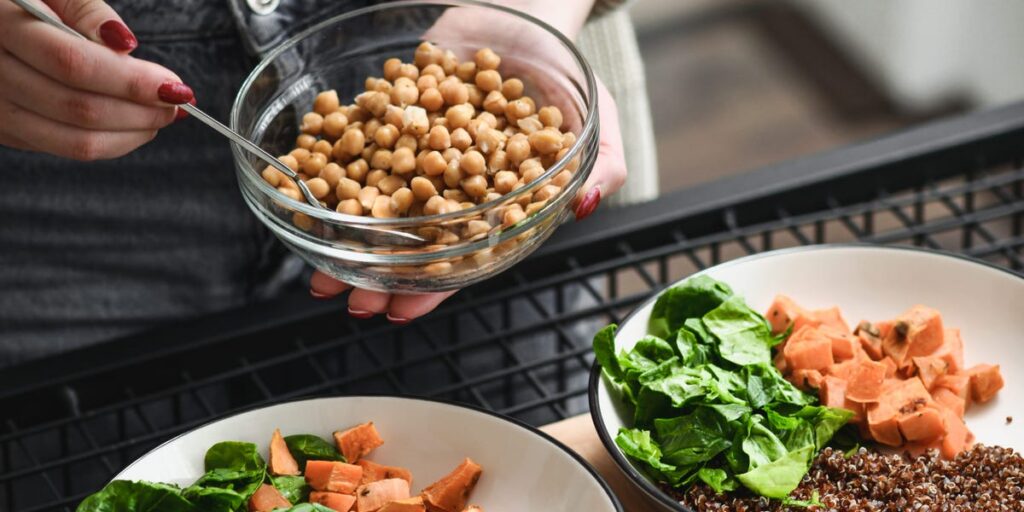A daily dose of beans can cut cholesterol, lower inflammation, and may help fend off chronic illnesses like heart disease, new research suggests.
A group of researchers from the Illinois Institute of Technology looked at 72 adults with prediabetes for three months, long enough to see changes in health metrics like blood sugar control.
The participants were divided into three groups. One group was instructed to add a cup of black beans per day to their normal routine. Another group added a daily cup of chick peas. The third, the control group, ate white rice instead of beans.
By the end of the 12-week study, participants who ate chickpeas reduced their cholesterol levels around 10%, from high — an average of 200.4 milligrams per deciliter (mg/dL) — to normal — 185.8 mg/dL. Participants who ate black beans saw a significant drop in their inflammation levels.
The study, presented at the American Society for Nutrition’s annual conference June 3, focused on people with prediabetes — a condition that affects more than a third of Americans. Many don’t get diagnosed until it becomes advanced and is harder to manage.
Diet strategies like adding beans could be a way to intervene before people develop diabetes or other health issues, Indika Edirisinghe, principal investigator in the study and professor Illinois Institute of Technology, told Business Insider.
“The small change is helpful. Just 10% is like saving your life, saving your money. This is not rocket science.”
Beans are a superfood for metabolism and longevity
Beans are rich in fiber, a type of carbohydrate that helps support healthy digestion and metabolism. It also feeds beneficial bacteria in our gut known as the microbiome, which are linked to everything from good mental health to healthy aging.
Beans also offer a range of polyphenols, plant-based compounds that help reduce inflammation and oxidative stress which contribute to disease.
While a wealth of previous research has linked eating beans to longevity and heart health, many past studies weren’t rigorous enough to show beans cause the benefits.
This study used direct measurements of change like blood tests.
They also uniquely assessed the health effects of different types of beans separately, instead of looking at legumes more generally.
Having one group eat chickpeas and another eat black beans allowed researchers to look for potential benefits of different nutrients, Morganne Smith, a doctoral candidate at Illinois Institute of Technology who presented the study at the conference, told Business Insider.
5 tasty ways to add beans to your diet
Don’t be intimidated about adding beans to your daily diet. There are lots of ways to get creative without much time, prep work, or expensive ingredients.
Smith said she’s already a bean enthusiast, but her family has been enjoying them even more often recently with simple bean recipes.
“I try to look for easy ways. Nothing too fancy,” she said.
To get started:
- Mix up a bean salad with chopped onions, tomatoes, cucumbers, and any leftover veggies you have on hand.
- Blend beans into a soup to create a thicker texture and add nutrients.
- Snack on hummus or other bean-based dips.
- Opt for chickpea pasta instead of wheat-based paste for more protein and fiber.
- Try beans for breakfast! Edirisinghe starts the day with chickpeas sauteed in coconut, olive oil, lemon juice, and a dash of salt and pepper.
You can also experiment with different seasonings to create more variety in your bean regimen.
Turmeric, for instance, can add earthiness and bright color, as well as a boost of anti-inflammatory benefits.
Beans are also a healthy eating staple because they’re both affordable and easy to find, said Smith.
“On top of the health benefits, I’m excited about the idea that people will think ‘That’s really easy to just continue incorporating in my diet realistically,'” she said.
Read the full article here


